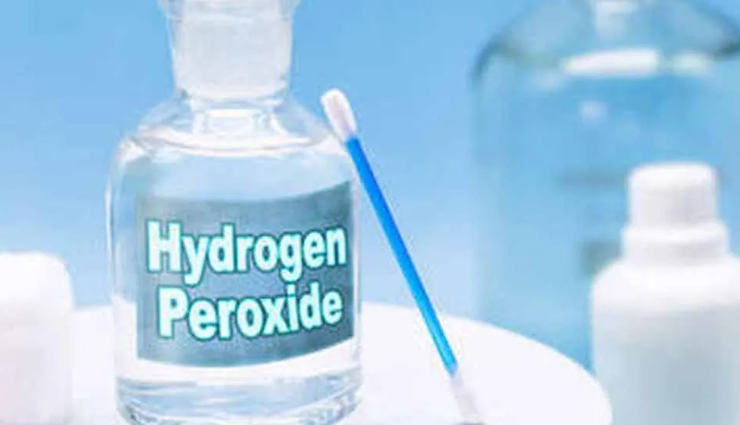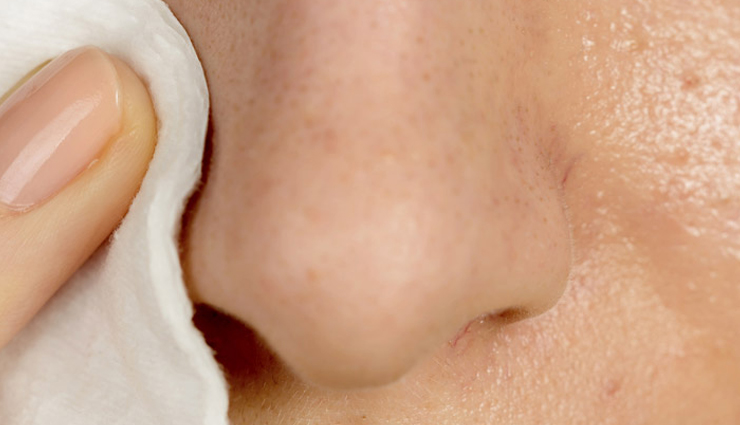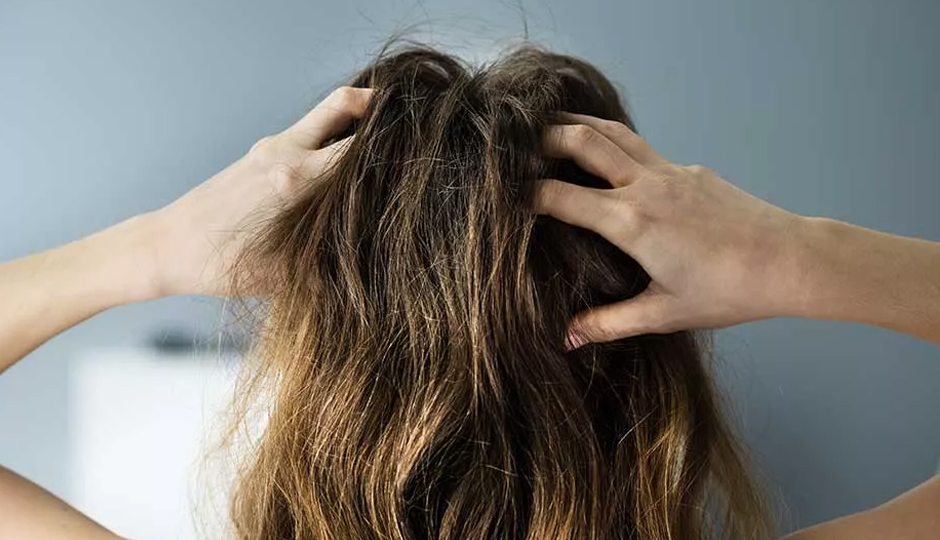How To Use Hydrogen Peroxide To Remove Blackheads?
By: Priyanka Maheshwari Tue, 18 July 2023 10:15:25

Blackheads can be frustrating and persistent blemishes that commonly appear on the face, particularly on the nose, chin, and forehead. They are a type of non-inflammatory acne called open comedones, presenting as small, dark bumps on the skin's surface.
Causes:
Blackheads form when hair follicles become congested with excessive oil (sebum), dead skin cells, and bacteria. Several factors contribute to their development, including:
Excessive oil production: Overactive oil glands can result in an accumulation of sebum, increasing the likelihood of blackhead formation.
Hormonal changes: Hormonal fluctuations during puberty, menstruation, or hormonal disorders can trigger heightened oil production, leading to the occurrence of blackheads.
Poor skincare routine: Inadequate cleansing or the use of harsh skincare products can contribute to the buildup of oil and dead skin cells, leading to the formation of blackheads.
Certain medications: Specific medications, such as corticosteroids, androgens, or lithium, can stimulate oil production, potentially exacerbating blackheads.
Genetic predisposition: Some individuals may have a genetic predisposition to develop blackheads and acne in general.
Treatment and Prevention:
Various approaches can effectively manage and prevent blackheads. Consider the following strategies:
Gentle cleansing: Cleanse the face twice daily using a mild, non-comedogenic cleanser to remove excess oil, dirt, and dead skin cells. Avoid harsh scrubbing, as it can irritate the skin and worsen blackheads.
Exfoliation: Regular exfoliation helps eliminate dead skin cells and prevents pore blockages. Opt for gentle exfoliants containing salicylic acid or alpha-hydroxy acids (AHAs). However, be cautious not to over-exfoliate, as it may cause skin irritation.
Topical treatments: Over-the-counter products containing ingredients like benzoyl peroxide, salicylic acid, or retinoids can be effective in reducing blackheads. They work by unclogging pores, reducing oil production, and promoting skin cell turnover.
Professional extraction: Manual extraction of blackheads performed by dermatologists or estheticians using specialized tools can be beneficial. It is essential to seek professional assistance to avoid skin damage and scarring.
Avoid pore-clogging products: Use non-comedogenic or oil-free skincare and cosmetic products to prevent further pore congestion.
Healthy lifestyle habits: Maintaining a healthy lifestyle through a balanced diet, hydration, stress management, and regular exercise contributes to overall skin health and may help prevent blackheads.
Hands-off approach: Refrain from picking, squeezing, or touching blackheads, as it can lead to inflammation, infection, and potential scarring.

Hydrogen Peroxide To Remove Blackheads
What You'll Need:
Hydrogen peroxide (3% solution)
Cotton balls or pads
Mild cleanser
Warm water
Clean towel
Moisturizer (optional)

Step-by-Step Guide:
Cleanse Your Face:
- Start by washing your face with a mild cleanser to remove any dirt, oil, or makeup. Gently pat your face dry with a clean towel.
Prepare the Hydrogen Peroxide Solution:
- Pour a small amount of hydrogen peroxide (3% solution) into a bowl or dish. You can find hydrogen peroxide at most drugstores or supermarkets. Be sure to use the 3% concentration, as higher concentrations may irritate the skin.
Soak a Cotton Ball or Pad:
- Dip a cotton ball or pad into the hydrogen peroxide solution. Squeeze out any excess liquid, ensuring it's damp but not dripping.
Apply to Blackhead-Affected Areas:
- Carefully apply the damp cotton ball or pad to the areas with blackheads. Gently press it onto the skin, focusing on the affected areas. Avoid rubbing or scrubbing, as this may cause irritation.
Allow it to Sit:
- Let the hydrogen peroxide sit on your skin for about 5-10 minutes. This allows the solution to penetrate the pores and loosen the blackheads.
Rinse with Warm Water:
- After the allotted time, rinse your face thoroughly with warm water. Ensure that all the hydrogen peroxide is washed away.
Pat Dry and Moisturize:
- Gently pat your face dry with a clean towel. If desired, apply a moisturizer suitable for your skin type to keep your skin hydrated.
Repeat Regularly:
For optimal results, repeat this process 2-3 times per week. Consistency is key in effectively treating blackheads with hydrogen peroxide.
Important Tips and Precautions:
Conduct a patch test: Before applying hydrogen peroxide to your entire face, perform a patch test on a small area of skin to check for any adverse reactions or sensitivity.
Avoid contact with eyes and mouth: Take care to avoid contact with your eyes and mouth while using hydrogen peroxide.
Moisturize afterward: Hydrogen peroxide can be drying to the skin. To maintain the skin's moisture balance, follow up with a suitable moisturizer.
Consult a dermatologist: If you have severe blackheads, sensitive skin, or any underlying skin conditions, it's best to consult a dermatologist for personalized advice and treatment options.





